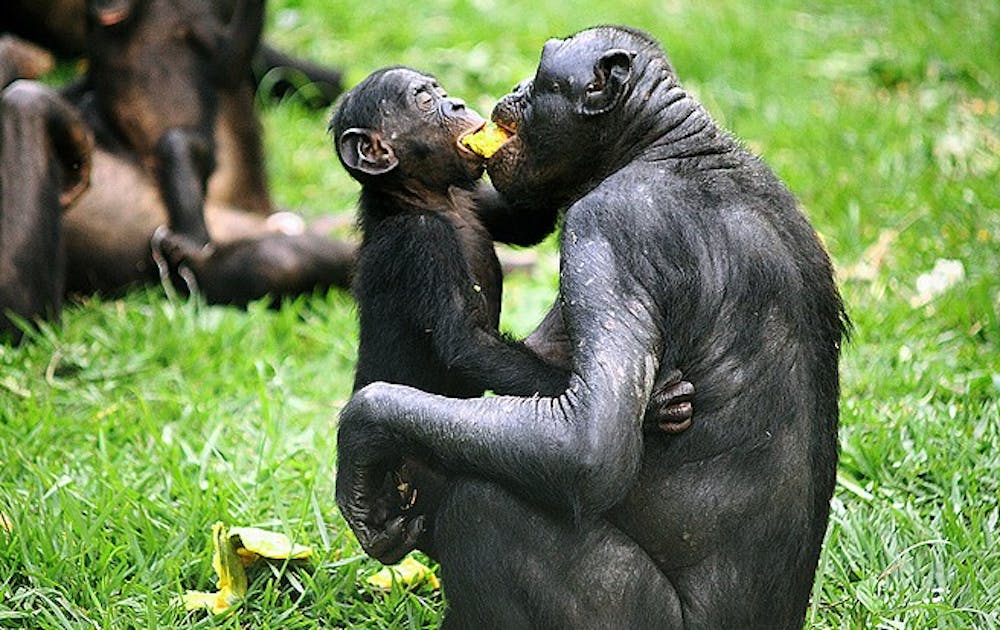A Duke study on great apes shows that humans are not alone when it comes to “paying it forward.”
Bonobos will choose to share food with strangers over bonobos that they already know, evolutionary anthropology graduate student Jingzhi Tan found in a series of experiments. Bonobos and chimpanzees are the closest relatives to humans, but the research, published in PLOS ONE Jan. 2, shows how bonobos differ from chimpanzees, who are typically distrustful of strangers to the point where they even kill chimpanzees from different tribes.
Tan collaborated with evolutionary anthropology associate professor Brian Hare, who runs the Duke Canine Cognition Center and conducts comparative studies on the cognitive development of humans, chimpanzees and bonobos. By studying humans’ closest living relatives, researchers can learn how altruism evolved in humans, and what makes us different, Tan said.
“We’re trying to understand human nature,” Tan said. “You have to be truly altruistic to be nice to strangers. All over the world, people help strangers. That leads to a hypothesis that we are special because we do that. Are we able to find some other animals that can do it?”
In the study, researchers left food for a bonobo in a room, giving them the option of eating everything by themselves, sharing with a friend or sharing with a stranger. To share with a friend or stranger, the bonobos had to open one of two doors where the apes waited. In all cases, the bonobos opened a door to share, however Tan said the surprising finding from the study was that bonobos preferred to share food with strangers over friends.
Tan suspected bonobos would be altruistic because they are typically peaceful in their interactions with other bonobos—unlike chimpanzees and humans, bonobos do not kill each other.
“We would expect that they would be nice to strangers,” Tan said. “But the shocking thing to us is that they are nicer to strangers than acquaintances.”
Lasana Harris, an assistant professor of psychology and neuroscience, focuses on the human side of cognition as part of his research collaboration with Hare’s laboratory. Studying chimpanzees and bonobos can offer a glimpse into the evolutionary past of humanity, he said.
“The way we like to think about it is that in chimpanzees and bonobos you have two very closely related species, both closely related to humans, but you get two different kinds of behavior,” he said.
Bonobos are peaceful and “pro-social,” interacting well with neighboring bonobos, Harris said, adding that, in contrast, chimpanzees can be aggressive and anti-social.
“In those two species, you get both the good and bad side of humanity,” he added. “It’s not a perfect separation, but it’s an interesting way for us to think about it.”
Bonobos are so inclined to share with strangers that after the bonobo stranger entered the room, it would then go and open the other door to further split the food with the original bonobo’s friend. This meant the bonobo stranger got to meet yet another stranger.
Harris is running a human version of the bonobo study right now and is in the early stages of collecting data. Unlike other primates, however, humans can perceive strangers as familiar, even if they have never meet, if the stranger is a member of the same social group or shares certain characteristics or affiliations.
Another future project could look at what the role strangers play in bonobos minds.
“Do they treat strangers as if they’re close friends?” Tan asked. “Or do they treat strangers just as they would a normal friend?”
Get The Chronicle straight to your inbox
Signup for our weekly newsletter. Cancel at any time.

